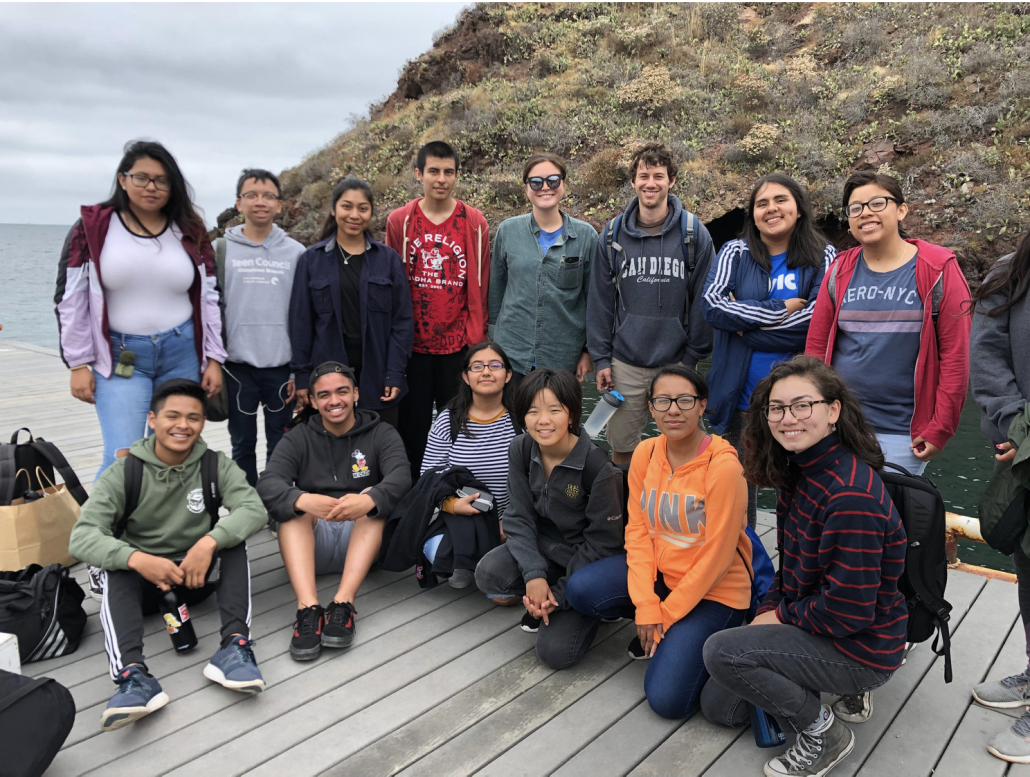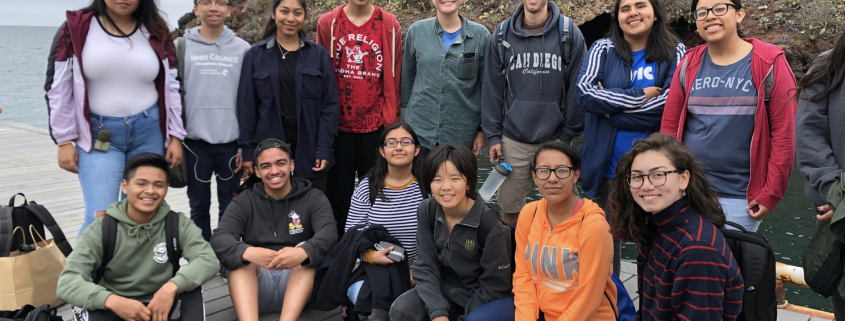Young Researchers Program focuses on mentorship

Through USC’s Young Researchers Program, the laboratories at USC have seen doctoral students paired with budding scientists from local high schools each summer since 2009. Juan Bravo, a doctoral student studying gerontology at USC, got his first lab experience in 2011, after being accepted to the program. That year, he worked alongside a mentor and studied metal concentrations in Mexican candy, but now, in 2021, as a USC gerontology doctoral student and mentor in the program, Bravo’s mentorship experience looks much different in light of the pandemic.
YRP, a free six-week summer program that accepts 12 to 15 local under-represented and low-income rising high school seniors to conduct research alongside a doctoral student, has moved to an online setting. Instead of hands-on research, like Bravo’s project, the program has shifted to a focus on virtual college application help and career panels.
YRP remains a free program due to the doctoral students who volunteer more than 2,000 hours a year to the program. The doctoral students aim to raise $25,000 through fundraising initiatives to guarantee that YRP is fully funded for one summer. To reduce educational and economic inequalities, the application process does not consider GPA.
Prior to the pandemic, the program included laboratory research, field trips to USC Wrigley Institute at Catalina Island, NASA JPL Laboratory and a new initiative to take the students camping at Sequoia & Kings Canyon National Park where they will learn about geology and ecology firsthand. The program also included talks from the USC Office of Admission or financial aid officers, talks about college life and weekly seminars that highlighted what a career in STEM and the college admission process could look like for the rising seniors.
Instead of pairing mentors and mentees to a hands-on research project, the program has shifted towards having mentors help students with their college application essays, specifically UC insight questions. The program also added a day dedicated to exploring careers students could pursue in science and providing students an opportunity to hear from different speakers in the field.
“[We got] people from different careers after [being] in industry and academia [to] come and talk about their experience and what they did to get to where they are,” Ramin Ghoddousi, a doctoral student studying neuroscience, said. “In that group we tried to have people of color as well just because it’s very important to see people that look like you and have had similar experiences.”
Colette Fletcher-Hoppe, a doctoral student studying marine and environmental biology, is the mentor liaison for the program. She is in charge of recruiting other doctoral students as mentors for the program and created a scientific panel for the high school students.
“We reached out to a bunch of scientific professionals with a wide range of backgrounds and scientific careers, asking them to explain their jobs and what they liked or they didn’t like about their positions and what they did to get into that kind of a career just to expose the students to different career paths that you can have with a biology degree or some kind of a science degree.,” Fletcher-Hoppe said. “Not everyone is going to become a doctor, you can become a policy liaison, you can be involved in government, you can work in industry.”
Shai Porat, a doctoral student studying neuroscience and the director of YRP, started out as a mentor and has been a part of the program since 2017. Porat aims to create a sense of community at YRP, a goal that he has been able to work towards despite the pandemic.
“I love being a mentor,” Porat said. “I’ve enjoyed interacting with students and making sure that they don’t repeat the mistakes I made going into college, and they also get a more real world sense of what it’s like to apply to college and what to expect out of the college experience as opposed to many programs that just say, ‘Go to college because you need to and then kind of figure it out when you’re there.’”
According to Ghoddousi, the program may continue to be held online in the summer of 2021.
However, once it is safe to resume in-person interactions, the college essay mentorship will continue as well as bringing in scientists in the field, particularly people of color.
Ghoddousi is the summer coordinator for YRP and is responsible for school outreach in the local Los Angeles area. Ghoddousi said he is passionate about increasing representation of underrepresented communities in the STEM field and hopes that one day the mentees will see more mentors that look like them in the field.
“I’m very well aware of the disparities in sciences and throughout a lot of the rest of society as to racial and ethnic makeup of different fields,” Ghoddousi said. “So, I wanted to do something about it and I think this is a small way to help, trying to affect the pipeline essentially of high school to grad school and kind of get more representation.”
Thankful for his YRP high school experience as it helped him choose his career path and select USC for graduate school, Bravo encourages other students of diverse backgrounds to engage in mentorship programs. Choosing USC because of the opportunity he saw to become a mentor and potentially make a difference in the community, Bravo said he believes people of a diverse background have a responsibility to serve as a resource to guide underrepresented students.
“I never had that role model that I could relate to and talk to,” Bravo said. “It’s something that I think, to some degree, people of a diverse background have a responsibility in doing because if we don’t encourage the next generation of potential scientists it just makes it more difficult for them and it makes it more difficult to change the current state of affairs. It’s something that I am really happy and excited to do.”

